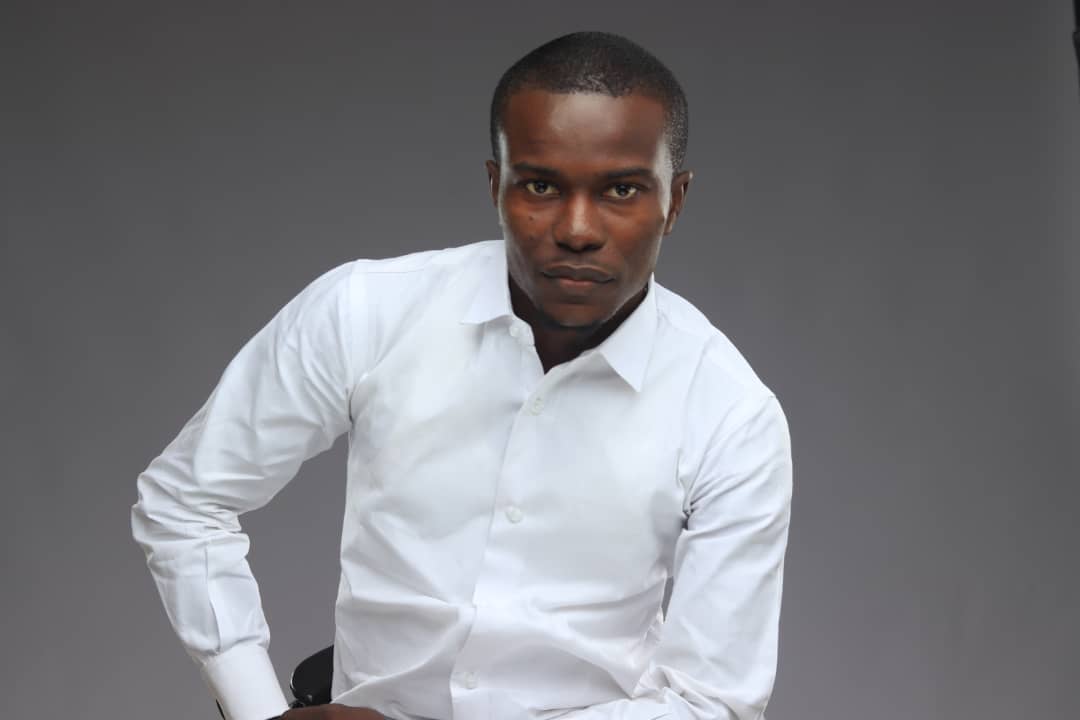Features
Mfonobong Inyang: Moses & Joshua – Leadership Archetypes For Different Generations

Anecdotes are veritable tools in storytelling because you are speaking to your audience in a language that they will understand. In deciding to do a series of deep dives on leadership imperatives, I also considered the use of archetypes in exploring perspectives that are typically hidden in plain sight because of the inability of most people to draw a straight line from historical events to their contemporary circumstances.
Moses was a great leader, if I do say so myself. Everything about him suggested that he was on a mission to redeem his people. He was raised by the very system he was born to dismantle. He had God’s number on speed dial; God co-signed on making him a god unto Pharaoh. Moses was the real “touch not my anointed.” If you as much as yarn okpata against him, you go collect. Ask his sister, Miriam for the deets. No Moses slander was tolerated on the timeline, that’s how influential he was. Then something happened, Moses died! The man that delivered his people from 400 years of slavery, gave them a brand new constitution, arranged chow for them in the wilderness on a steady, murked their oppressors in the Red Sea and interceded to God for them whenever the need arose was dead! How do you tell people to move on from that kind of high-impact leadership? Even God had to make his grave location classified because people mourned his passing so much that they were willing to make his tombstone a pilgrimage site.
Whilst the people were expecting a Moses-esque successor, God chose the ex-leader’s understudy, Joshua but gives him a radically different debriefing: “I will be with you just as I was with Moses”. It takes someone with insight to hear what is not being said here; that simple statement is laden with meaning. God is effectively saying to Joshua that: “my presence will be with you like it was with Moses but my protocol will change. My principles are still the same but my playbook will be different”. To put the icing on the cake, God gives Joshua the OT: “This book of the law shall not depart from you.” In other words, your leadership must necessarily be strategic.
How is this leadership style different from Moses? Moses led millions of slaves to freedom but they knew little about statecraft. No clearly-defined foreign policy or strategic interests. They might have been in the wilderness but they were living the soft life and sky daddy was picking up the bills. They had fresh food delivered to their doorsteps, constant dry-cleaning, cooling systems during the day and heating at night, nobody got sick. Life was giving what it was supposed to give.
However, under Joshua, they would learn Economics 101; there is no free lunch anywhere. If they wanted to eat, then they had to learn how to cook. They needed a recipe which was a metaphor for strategy. Unlike Moses’ time where manna dropped every day and was even wasted, Joshua had to develop a sovereign wealth fund. He had to bootstrap; his spartan nature as a soldier helped him develop an ability to manage scarce resources and work lean budgets Moses used a simple staff but Joshua needed to train a strong army with sophisticated weapons. Moses’ foreign policy was conservative and Joshua’s was confrontational.
That’s why when some nondescript guy showed up, Joshua charged towards him with his sword drawn and asked pointedly: “Are you a friend or foe?” Moses may have used megaphone diplomacy with the likes of Pharaoh but Joshua no get joy; if you do anyhow, e go give you woto woto. Joshua so developed his country’s soft power to the point that when five kings heard that he was on the way to war with them, “…their hearts melted, no spirit remained in them.” It was Joshua that prayed for the sun to stand still just so e fit see road take wipe enemies cord for neck. This guy knows how to wet the streets up and come back with empty clips. Moses may have laid the foundation but when it comes to nation-building, na Joshua dey run am!
So where exactly am I driving at with all this shalaye? This is it: in 2023, Moses is no longer a man, Moses is now a mindset. That mindset said things like: “Money is not the problem but how to spend it” because it assumed power in a time of plenty. My problem with that is simple: you cannot have this kind of mindset in a time of scarcity. Even though we are the poverty capital of the world, the consensus amongst political pundits and public policy experts is that Nigeria has a big spending problem. Just take a look at the line items in our budgets and you will get all the answers. White elephant projects, over-inflated contracts and mind-boggling corruption everywhere. The archetype of a Moses’ mindset is that whilst such leaders may originally have good intentions, they inherently also have a propensity for profligacy. They are blessed but have no strategy, they are big on being respected but little on delivering socio-economic results. This is one of the reasons a Moses’ mindset cannot lead Gen Zs because that mindset interprets criticism as disrespect, hence the dividends of that demography will be lost under such leadership.
In 2023, Joshua is also not a man but a mindset. He may have been groomed by the old order but he has developed himself to have fresh paradigms. While Moses is operating from the analogue age, Joshua is futuristic with his digital approach. One person is still talking about tablets of stone, the other is already weaponising artificial intelligence with its many iterations such as Chat GPT. Twelve spies were sent out on war dog assignments but only he and his compatriot saw things differently. His training endows him with an ability to do more with less, which is why he loathes wastage.
Joshua is a type of messiah because he can relate to the people he was called to redeem. Notice when Caleb tells Joshua, “give me this mountain,” he wasn’t picked up by any security agency for questioning, his Twitter account wasn’t suspended, no PND was slammed on his bank accounts neither did he have to become a fugitive from his own country for a having an opinion – which is a fundamental right in the first place. It was a normal day at the office, heaven did not fall because of what Caleb said. In fact, Caleb got what he demanded. This was only possible because Joshua himself emerged from the crucible of speaking up; he courageously gave a minority report even when it wasn’t politically correct. That’s why he very much understands the sentiments of a soro soke generation. He is a high priest who is touched by the feelings of their infirmity. This also explains why they are in turn rooting for him aggressively. Under Joshua’s leadership, the civic space is more animated. Under Moses’, it shrinks.
When you’re dealing with a world filled with the sons of Anak, you need a leader that can see things differently – a person whose worldview isn’t that of an ant but that of a giant. Someone that looks at challenges and says, “It’s possible!” I have nothing but respect for Moses; that year he brought water out of the rock and it would be disingenuous to forget that. However, I beg to differ on his mindset and principle. The ideal scenario would have been for Moses to sit on the mountaintop and coordinate intelligence, surveillance and reconnaissance while Joshua leads the tactical teams to victory in the valley.
Conditioning is a powerful thing; people love the familiar. So when you’re told to forget the former things, it’s almost antithetical to your human nature which is designed to retain knowledge or remember. God had to hide Moses’ corpse when he died because people just refused to move on. When Moses appeared in situ for the first time in centuries alongside Jesus, God had to hide Moses again because Peter with his religious mindset was already talking about building monuments to immortalise the same person God said should have been forgotten. When Jesus (the etymology of this name actually links to variants such as Joshua and Jehoshua) was alone, God said, “This is my son, hear ye him!” To put it in leadership speak: “This is my leadership archetype, my preferred model, let this mindset be in you!”
John C. Maxwell submits that everything rises and falls on leadership. No management expert worth his or her salt on God’s green earth can disagree with that.





















